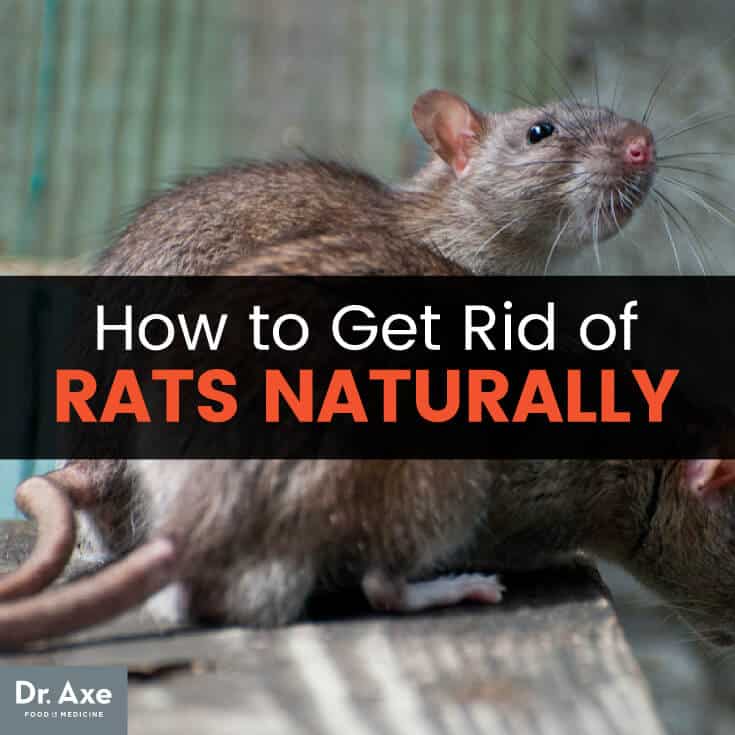This Dr. Axe content is medically reviewed or fact checked to ensure factually accurate information.
With strict editorial sourcing guidelines, we only link to academic research institutions, reputable media sites and, when research is available, medically peer-reviewed studies. Note that the numbers in parentheses (1, 2, etc.) are clickable links to these studies.
The information in our articles is NOT intended to replace a one-on-one relationship with a qualified health care professional and is not intended as medical advice.
This article is based on scientific evidence, written by experts and fact checked by our trained editorial staff. Note that the numbers in parentheses (1, 2, etc.) are clickable links to medically peer-reviewed studies.
Our team includes licensed nutritionists and dietitians, certified health education specialists, as well as certified strength and conditioning specialists, personal trainers and corrective exercise specialists. Our team aims to be not only thorough with its research, but also objective and unbiased.
The information in our articles is NOT intended to replace a one-on-one relationship with a qualified health care professional and is not intended as medical advice.
How to Get Rid of Rats Naturally
February 24, 2017
Updated: October 2, 2017

Rats are some of the smartest animals on the planet, but they are also one of the biggest disease-spreading pests around. That’s why so many people wonder how to get rid of rats in a natural, safe way, and that curiosity has spiked recently.
It turns out, rats don’t just carry filth and annoying disease — they can be lethal. In fact, recently in New York City three people became severely ill, (one of them even died), due to the rare disease leptospirosis. (1) According to the NYC Health Department: “Leptospirosis is a bacterial infection that is most commonly spread by contact with rat urine and is very rarely spread from person to person.” (2)
However rare, the disease can be lethal, evidenced by the New York death. And that’s not the only disease rats spread. Thankfully, if you’re wondering how to get rid of rats, there are natural, effective ways to do so, without harmful rat poison.
How to Get Rid of Rats the Natural Way
Go to any home department store and you’ll find plenty of rodent traps and repellants. Unfortunately, a large portion of those contain poison rat bait, and that’s something you don’t want any part of. For starters, rats and other rodents typically make their way to your food, which means you probably put traps near your pantry, shelves, oven, refrigerator, and so on. If the poison bait is strong enough to kill rats and mice, what do you think that poison will do to humans? Certainly nothing good — which means you don’t want that stuff anywhere near you or your food.
Most of these are extremely toxic and cause damage to humans, animals and the environment. For instance, rat poisons endanger thousands of children a year, and the Environmental Protection Agency reports they “are, by far, the leading cause of [pesticide-related] visits to health care facilities in children under the age of six years and the second leading cause of hospitalization.” (3) Children are naturally curious, and given that most rat poisons taste sweet, this can be a lethal combination. The same is true for your pets. But that’s not all.
Rat poison also kills off wildlife that actually helps control the rodent population. So not only do rodenticides do damage to the rodents themselves — they’re actually lethal to humans, pets and rodent predators. Beyond that, they can leech into food, water and the soil, compounding the damage. (4) We’re talking highly toxic ingredients like warfarin, chlorophacinone, diphacinone, bromadiolone, difethialone, brodifacoum, bromethalin, cholecalciferol, zinc phosphide and strychnine, among others. (5) Boric acid is a less dangerous chemical that can be used to get rid of rodents, but it’s still toxic if ingested and poses hormone disruption risks to humans. (Canada actually advises against using it for pest control.)
That’s why it’s always better and safer to use natural, humane options. Here are some ways to get rid of rats naturally:
1. Electric Shock and Catch & Release Traps
While there are non-toxic rat baits out there, the reviews are mixed. So if you’re looking to use a store-bought remedy, electric shock and catch and release traps seem to be the most effective. Electric shock devices give rats a scare, making them avoid those areas. It may be unpleasant for the animal, but it’s not lethal nor poisonous — just a deterrent.
As for traps, while traditional mouse traps can work on rats as well, they do physical damage to the rodents. They are not toxic, of course, which is a plus, but if you’re looking not to harm any animals, you can use catch and release traps that contain the pests. If you opt for glue traps, make sure to use a natural glue.
2. Essential Oils
Essential oils are tremendous for people wondering how to get rid of rats in a safe, non-toxic way.
Rats and mice cannot take the pungent odor of peppermint oil, making it a safe, natural repellent that comes with no harm to humans or the animals. Place drops of peppermint near the areas that are prone to rats, such as openings, near the pantry, etc.
Similar to peppermint, citronella oil — known to repel mosquitos and other insects — can also dissuade rats. Again, it is the strong smell that rats dislikes.
Another effective essential oil for how to get rid of rats is eucalyptus. Research published in the Scientific World Journal explored the effects of eucalyptus oil on repelling rats. Mature and healthy house rats, both male and female, were exposed to eucalyptus oil in 5 percent, 10 percent and 20 percent concentrations. Daily application of the 5 percent and 10 percent oil seemed most effective, and the researchers concluded, “Present studies reveal the potential of eucalyptus oil in repelling away R. rattus; however, further studies may be conducted to enhance the persistence of repellent effect for longer period of time.” (6) (Just be cautious. Eucalyptus oil is not recommended around cats, either.)
3. Owl’s Feather
Rats are extremely smart creatures, and research shows they’ll adjust their behaviors to their surroundings. This includes threats and perceived threats. As studies conducted by the Department of Zoology at Tel-Aviv University show, rodents learn how to move and then avoid attacks from owls. (7) Thus, when rodents see owls or signs of owls, they typically avoid those areas or flee. Thus, keeping an owl feather near holes and areas of rat infestations can drive them out.

4. Peppers
Capsaicin is the active compound in peppers that gives them their heat. It turns out, that heat can also work as a wonderful way for answer the question of how to get rid of rats.
The New York Cooperative Fish and Wildlife Research Unit at Cornell University tested capsaicin as a repellant to rodents in poultry feed. What the researchers found was quite promising: “Use of capsaicin-treated feed on poultry farms may substantially reduce feed contamination by rodents and ultimately the incidence of Salmonella infection in poultry.” (8)
So, if you wondering how to get rid of rats, try sprinkling pepper where the rats reside, and they may not be able to stand the heat.
5. Onion
While onion nutrition has actually been shown to be beneficial to rats, particularly for reproduction, the pungent odor of onions is a natural repellent to rats and other rodents. Much like some humans dislike the smell (and taste) of onions, the same is true for rats. You can slice up onion and put it near the rat-infested area to help drive them away.
Rat Trap and Repellent Tips
In order for natural ways for how to get rid of rats to work, you need to keep a few things in mind: (9)
- Place along walls in low-light settings where rats travel. Some common areas to put traps include under furniture, in closets and along walls. You can also cut holes in boxes in these areas and trap them.
- Use bait that rats consume: peanut butter, cheese, nuts or fish.
- Place traps without setting them so rats become accustomed to them. They’re smart, so if they see a trap work, they’ll avoid it.
- The type of trap matters just as much as bait. Figure out the type of rat and its size so you can find the appropriate trap and bait according to the rat’s habits.
Most Common Diseases Rats Spread
Why is it so important to learn how to get rid of rats and avoid them whenever possible? According to the Centers for Disease Control and Prevention, rodents, including rats, can directly transmit the following diseases: (10)
Rats and other rodents can also indirectly transmit cutaneous leishmaniasis, human granulocytic anaplasmosis, murine typhus, scrub typhus, relapsing fever and more.
Top Rat-Infested Areas in the U.S.
Rodents encompass a large number of animals, and there are about 1,500 different rodent species. Several rat species are included here, and they are some of the smartest rodents — and animals — around. They display many human traits, like feeling loneliness, stress, regret, depression and anxiety, and rats communicate with one another a number of ways: touch, sound and smell. (11) And rats are able to learn new skills and even concepts quickly, which is why they’re so hard to get rid of and why they’re so good at surviving.
As part of their survival instinct, rats know the more of them, the better chance of survival, and this is how they’re designed. A rat can breed up to 15,000 offspring in a single year. This is quite useful, since rats typically live only about two or three years. (12) They breed in the spring most often, but female rats actually can be in heat year-round. This can make it difficult to pinpoint when is best to curb a rat infestation or learn how to get rid of rats, but getting them in the early stages is best, as rats reach sexual maturity as early as five weeks after birth. (13)
Rats are out and about often from April to June. Then, when fall comes around and the cold weather comes in, rats tend to resurface, mostly in homes and buildings to stay warm.
Believe or not, rats can gain entry to your home through the tiniest of openings — we’re talking being able to fit through a coin-sized hole. They also wear down their teeth — which grow 4.5 to 5.5 inches a year — by gnawing on just about anything, including cement, brick, wood and lead pipes. This can lead to home damage in addition to the threat of disease. (14)
So where do rats congregate most? The short answer is everywhere — however, there are certain cities that tend to have greater rat infestations than others. The top 10 rat-infested cities in America are: (15)
- Chicago
- Los Angeles
- Washington, D.C.
- New York
- San Francisco
- Seattle
- Detroit
- Cleveland
- Baltimore
- Miami

Outside the U.S., the top 10 rat-infested places are:
- London
- Paris
- Karni Mata Temple in Deshnoke, India
- Birmingham, England
- Bukit Batok New Town, Singapore
- Hamelin, Germany
- Guangzhou, China
- Johannesburg
- Montecristo Island, Tyrrhenian Sea
- Rat Island in the Aleutians
How to Avoid Rats and Disease
Here are a few simple tips to avoid rats and to supplement ways for how to get rid of rats: (16)
- Get a cat.
- Keep trash sealed and take it out when you throw food away.
- Keep food sealed and in closed containers.
- Seal holes in walls, doors and screens.
- Close off outside pipe entrances or block the entryways as best you can.
- Avoid areas with rats.
- Wash hands after coming into contact with rats or rat-infested areas, and wear gloves when handling anything that could be contaminated with rat waste.
Final Thoughts on How to Get Rid of Rats
- Rats are highly intelligent animals known for their survival skills, but they also carry many diseases, some of which can be life-threatening. That means you want to avoid contact with these critters as much as possible.
- Unfortunately, many rat traps utilize poison rat bait, and humans should avoid them at all costs. Rat poison is also lethal to children, adults, pets and wildlife, plus it’s harmful to the environment.
- If you’re wondering how to get rid of rats without dangerous chemicals, you’re in luck. There are humane traps, electrocution traps, along with essential oils, vegetables and other natural deterrents you can use.
- It may not be easy to avoid rats completely, but there are natural ways you can deal with a rat infestation without harming yourself or your environment.










